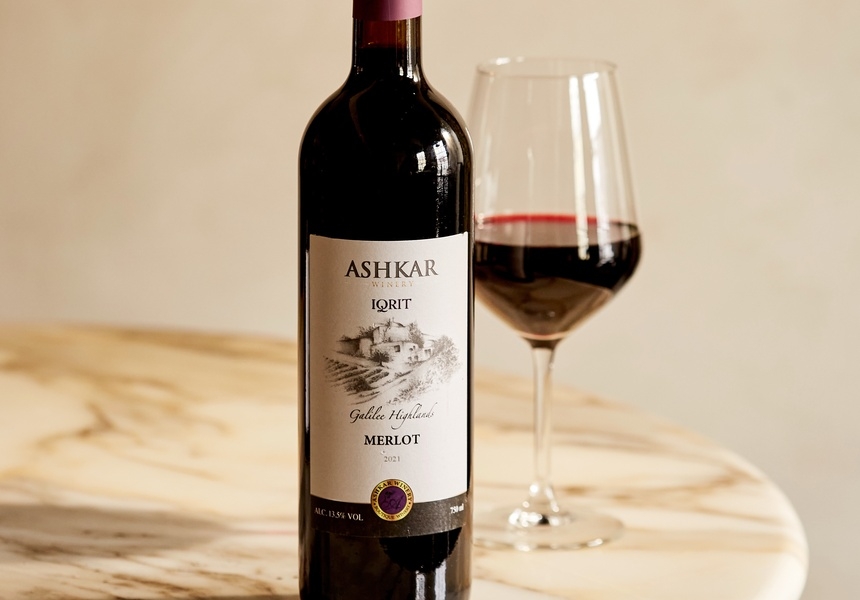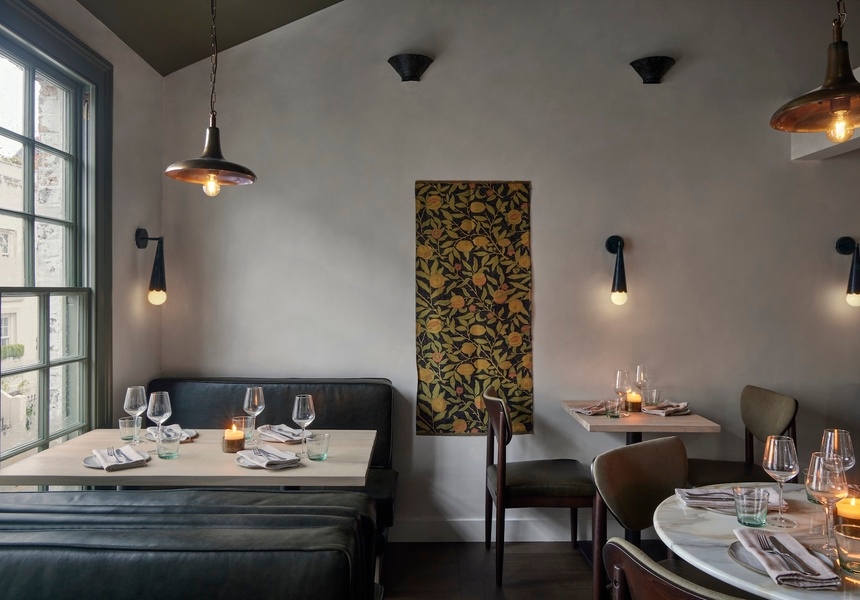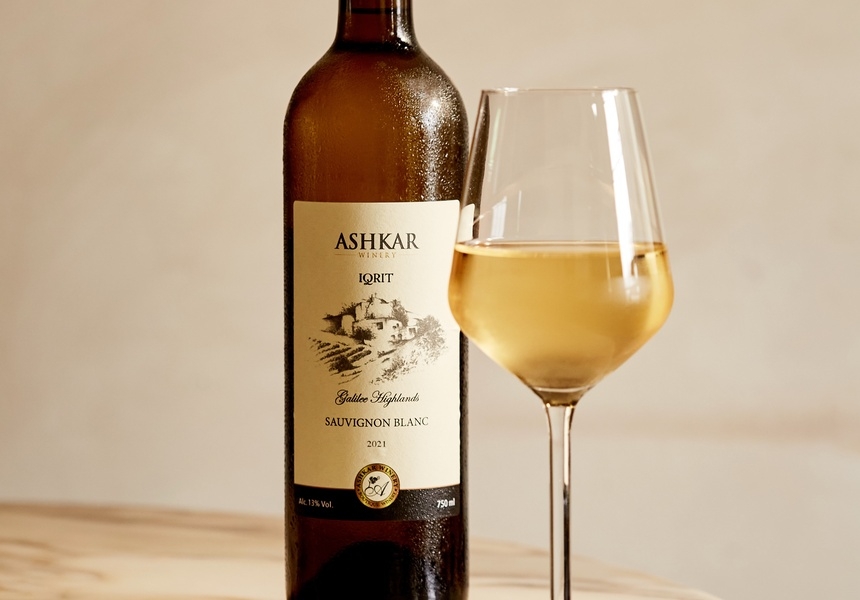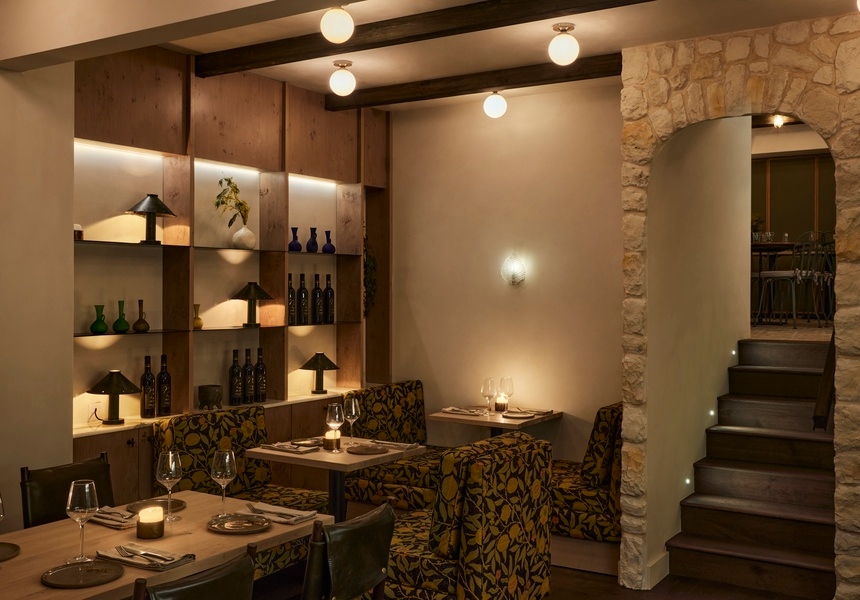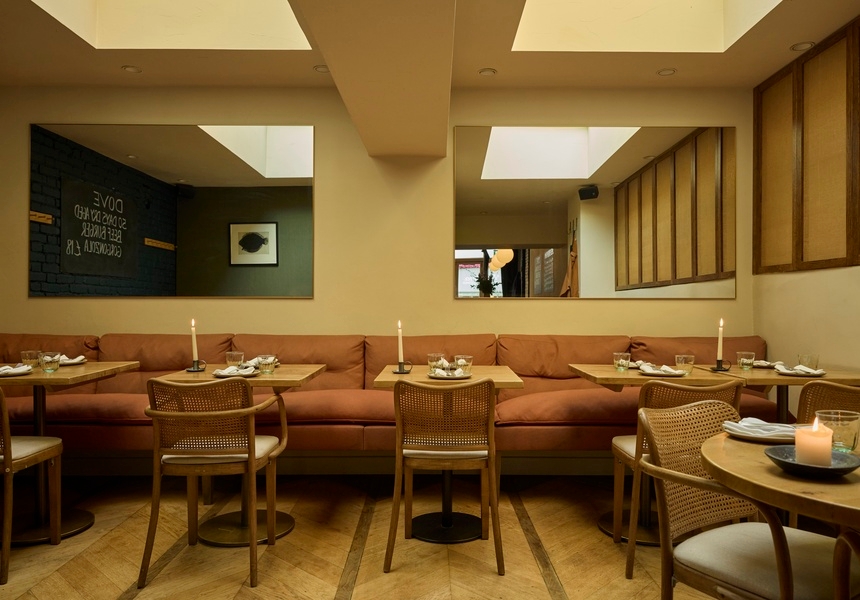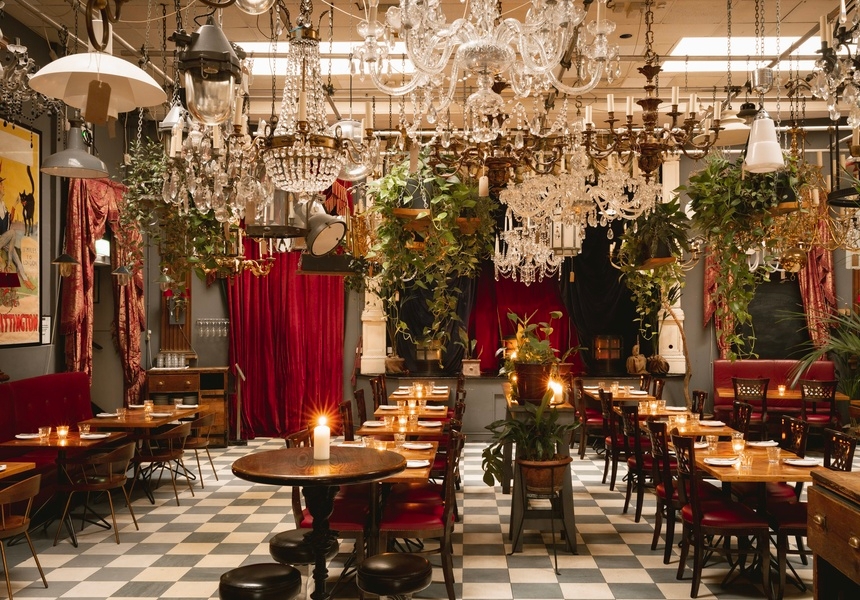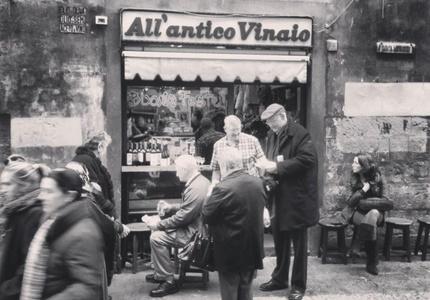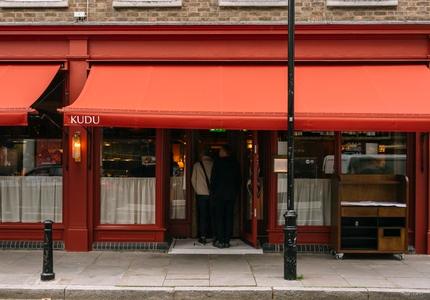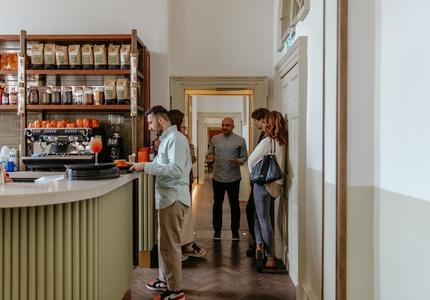A modern wave of Palestinian wine is being poured in London restaurants – and it’s the result of thousands of years of one of the world’s oldest vinicultural traditions. In the first century AD Palestinian wine was among the most prized in the Mediterranean and the Gaza jar, a tall storage vessel, was used by the Romans to transport it as far as England.
Winemaking dwindled in the 20th century, with families forced to flee during the Nakba and historic vineyards uprooted, and it’s been hard to find Palestinian wine in London. But now elegant Palestinian restaurant Akub, in Notting Hill, is introducing a modern wave of Palestinian wines – and encouraging others to do so, as well. Its wine list comprises almost 80 per cent Palestinian bottles and Kattan, Akub co-founder Rasha Khouri and its sommelier Anna Patrowicz also operate Palestinian-wine importer Nabeeth.
Grapes are Palestine’s second most important crop (after olives), Akub founder Fadi Kattan tells Broadsheet over the phone from his home in Bethlehem. Much is eaten in the form of grapes, raisins, molasses and vine leaves, but in recent decades several families have started resurrecting winemaking, which was long confined to hobbyists.
There are now seven commercial producers, including Ashkar and Jascala in upper Galilee, and Taybeh and Cremisan in the West Bank. Each has an emotive backstory. The Ashkar family is originally from Iqrit, close to the Israel-Lebanon border, where their vineyards were seized after the Nakba. Their bottles display a drawing of the village’s church, the only structure that remained standing when the village was destroyed in 1951.
Though a small country with relatively few producers, it grows numerous varietals. International grapes like cabernet sauvignon, sauvignon blanc and merlot are popular, but Palestine has at least 23 recognised indigenous varieties, too, from zeini, which produces crisp, light, zesty whites, to bitouni and baladi, which make beautiful reds with elegant tannins.
At Akub, sommelier Anna Patrowicz shows Broadsheet several of the restaurant’s most popular bottles. There’s Ashkar’s Bayad, a blend of chardonnay, sauvignon blanc and muscat goes with the prawn zibdiyyeh, a spicy Gazan dish and Jascala Reserve cabernet sauvignon 2014, a powerful red which Patrowicz says pairs perfectly with Akub’s short-rib fatteh.
Starting at £65, the wines don’t come cheap. “There are challenges all over,” explains Kattan. “In the West Bank there are a lot of settler attacks against farmland, whether olives or grapes. Movement in the West Bank is restricted, so getting the grapes to the winery can be challenging, then transporting the wine for export.” The scale is also small, each producer only making around 30 to 40,000 bottles a year.
For Kattan, serving Palestinian wine is far from tokenistic. “I don’t want people to come to Akub because it’s Palestinian, but because it’s good food, and it’s the same with the wine,” he says. And through Nabeeth, Kattan is encouraging more London restaurants to stock Palestinian wine. Jackson Boxer has introduced Palestinian wine at his restaurants Dove, in Notting Hill, and Brunswick House in Vauxhall.
“The whole team was won over by their remarkable quality,” Boxer tells Broadsheet, adding that they sold out of their initial allocation within two weeks. “Our entire organisation has agonised for months about how we can meaningfully support the Palestinian people in this moment of extreme suffering, and while we’ve done much fundraising through various dinners and auctions in aid of causes looking to get urgent care and assistance to Gaza, it felt like a positive affirmation to celebrate the beautiful wine grown and made by Palestinian winemakers in the region.”
Kattan dreams of seeing Palestinian wines on lists as readily as Italian or French. “There’s no reason this terroir that’s so old and has so much tradition, that does fantastic wine, shouldn’t have this representation.”
